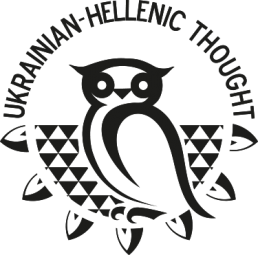PRIME MINISTER OF CANADA STEPHEN HARPER’S VISIT TO UKRAINE
In the last year, the Ukrainian Canadian Congress (UCC), one of UWC’s largest member organizations and the voice of the Ukrainian community in Canada for the past 70 years, has kept the government of Canada informed about the situation in Ukraine. Specifically, UCC alerted Canadian officials about the deterioration of democracy and human rights and called upon Canada to speak openly with Ukraine on these issues while fostering strong bilateral relations.
UWC President Eugene Czolij asked Prime Minister Harper to raise a number of issues with Ukraine’s leaders during official talks that are considered important by the international Ukrainian community. He asked him to communicate that Canada will continue supporting Ukrainian democracy and independence thereby showing Ukraine the value of improving ties with the West instead of pursuing the exclusively pro-Russian course chosen by the current government. The UWC President also requested Prime Minister Harper address the issues of the violation of human rights and fundamental freedoms occurring in Ukraine, media censorship and issues related to the 1932-33 Holodomor genocide of the Ukrainian people.
The Prime Minister of Canada began his visit to Ukraine in Kyiv on October 25, 2010. He honoured the memories of Ukrainian genocide victims at the “Remembrance Candle” Memorial Complex where he laid a symbolic candle and urn with wheat at the foot of the “Girl with wheat” statue and visited the “Memorial of Holodomor Victims in Ukraine“ National Museum. Prime Minister Stephen Harper also laid memorial wreaths at the Tomb of the Unknown Soldier and the Monument to the victims of Babyn Yar.
Next, the Canadian and Ukrainian delegations were introduced during an official ceremony. During his meeting with President Victor Yanukovych, Prime Minister Stephen Harper noted that Canada has been actively cooperating with Ukraine since Independence and that Canada was the first Western country to recognize that Independence. The issues of freedom and democratic rights were raised during talks as was the expansion of commercial activity between Canada and Ukraine. The sides signed a bilateral Youth Mobility Agreement, the goal of which is to improve opportunities for travel and employment between young people in both countries. During the joint press conference, the Prime Minister of Canada stated that his country will continue supporting Ukraine for as long as the principles of peace, democracy and freedom are respected.
Later the Prime Minister of Canada met with the Head of the Supreme Council Volodymyr Lytvyn and Prime Minister Mykola Azarov. The sides discussed bilateral cooperation and the upcoming local elections. Speaking to the latter issue, the Prime Minister of Canada noted that all parties running in the elections should respect Ukrainian law. Irrespective of the fact that Ukrainian is the state language of Ukraine, Prime Minister Mykola Azarov spoke Russian during the meeting.
While in Kyiv, Prime Minister Stephen Harper met with opposition leader and head of the “Batkivshchyna” political party Yulia Tymoshenko. They discussed current events and the upcoming local elections. Canada’s Prime Minister said that his country will continue to support Ukrainian democracy.
On October 26, 2010, the Prime Minister of Canada and the Canadian delegation travelled to Lviv where they visited the Ukrainian Catholic University and met with its rector, Fr. Boris Gudziak. He made headlines earlier in the year after being pressured by the State Security Service of Ukraine. The Prime Minister delivered a speech at the university in which he spoke about independence, freedom, democracy, human rights, rule of law and Canada’s support for democratic reforms in independent Ukraine. He made reference to the 1932-33 Holodomor noting that that Canada’s parliament recognized the manmade famine as genocide of the Ukrainian people.
Next the Prime Minister of Canada toured the National Museum and Memorial to the Victims of Occupational Regimes “Lonsky Street Prison“ and met with its director Ruslan Zabily, who was recently detained by the State Security Service of Ukraine. The head of Canada’s government expressed dismay over the fact that the Communist regime has not been condemned like the Nazi regime. He pledged support for a memorial honouring the victims of Communist repressions to be built in Canada on the initiative of the Ukrainian Canadian community.
According to the Prime Minister of Canada, his visits to the “Memorial of Holodomor Victims in Ukraine“ and “Lonsky Street Prison“ museums, showed his support for renewing Ukraine’s national memory and dealing with the consequences of Ukraine’s totalitarian past.
The Prime Minister of Canada also visited St. George’s Cathedral where he met with Bishop Venedict (Aleksiychuk) and descended into the crypt that houses the remains of Metropolitan Andrey Sheptyckyj and Patriarch Josyf Slipyj. Prime Minister Stephen Harper capped off his visit to Ukraine by laying flowers to the Taras Shevchenko monument in the Lviv city centre.
Summing up the visit to Ukraine, UWC President Eugene Czolij stated: “Prime Minister of Canada Stephen Harper’s visit to Ukraine was very successful. It proved that Canada is a long-time and reliable partner of Ukraine in supporting its independence and development of democratic institutions. I hope that the visit helped the people of Ukraine realize the importance of developing ties with Western countries, in particular with Canada, to counterbalance the drastically pro-Russian course adopted by Ukraine’s current government. It’s important that the Prime Minister of Canada spoke about the 1932-33 Holodomor as a genocide of Ukrainian people, that he voiced concern over the violations of human rights and fundamental freedoms and censorship of free speech in Ukraine and that he met with Fr. Boris Gudziak and Ruslan Zabily who have been subject to pressure by Ukraine’s new government.”
UKRAINIAN WORLD CONGRESS
145 Evans Ave., Suite 207
Toronto, ON
M8Z 5X8 Canada
Tel. (416) 323-3020
Fax (416) 323-3250
e-mail: congress@look.ca
website: www.ukrainianworldcongress.org
